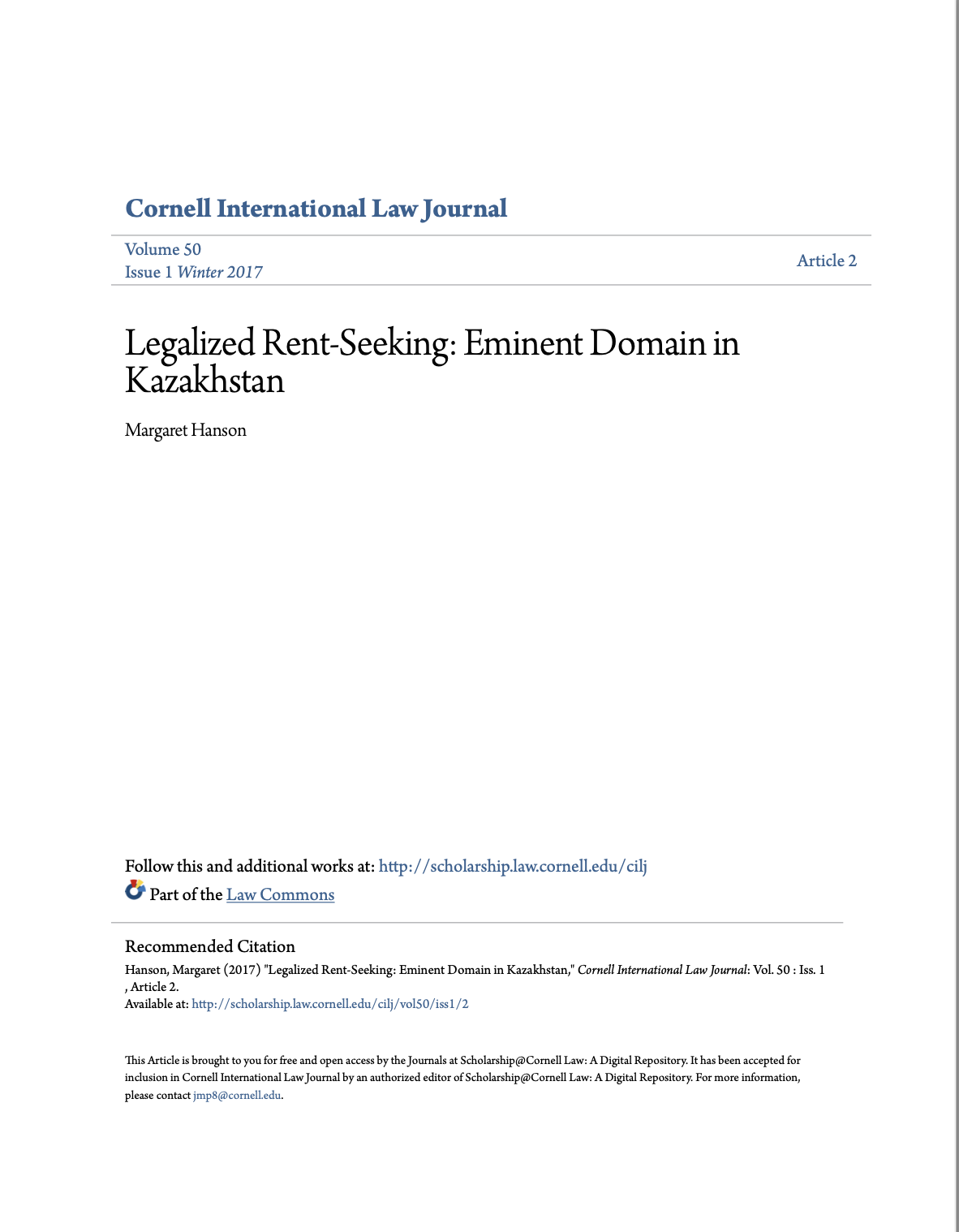Resource information
Cornell International Law Journal: Vol. 50 : No. 1 , Article 2 Kazakhstan ranks consistently low on measures of property rights protection and the rule of law more generally.1 Echoing these evaluations, existing literature emphasizes the degree to which informal institutions shape property relations in personalist, authoritarian regimes, like Kazakhstan. The expectation is that formal institutions like law and courts fail to restrain or otherwise influence state agents’ rent-seeking behavior. In effect, they serve primarily as ornamentation. Regardless, these explanations fail to explain why both citizens and the State regularly turn to these institutions to settle property disputes. This Article focuses on conflicts over eminent domain and finds that in these cases the law provides lower and upper bounds for officials’ rent-seeking behavior. Within these limits, law combines with informal practices to determine legal outcomes. Although the law and courts sometimes provide citizens with opportunities for limited redress, they also help facilitate and legitimize officials’ use of eminent domain for personal enrichment.


